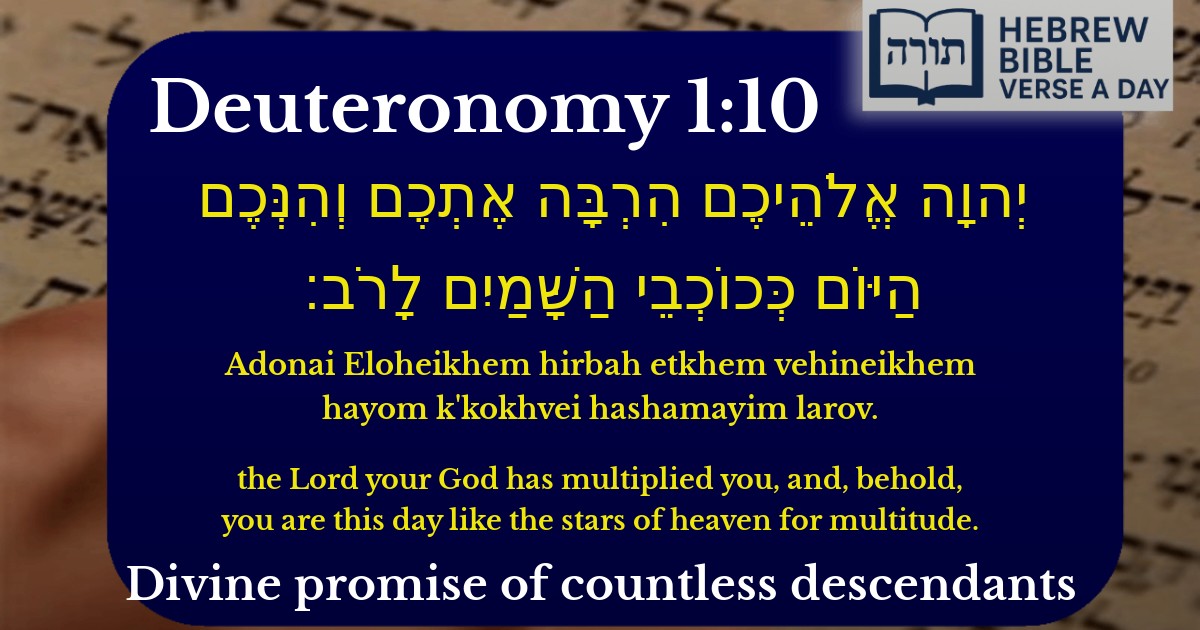Join Our Newsletter To Be Informed When New Videos Are Posted
Join the thousands of fellow Studends who rely on our videos to learn how to read the bible in Hebrew for free!
Hebrew Text
יְהוָה אֱלֹהֵיכֶם הִרְבָּה אֶתְכֶם וְהִנְּכֶם הַיּוֹם כְּכוֹכְבֵי הַשָּׁמַיִם לָרֹב׃
English Translation
the Lord your God has multiplied you, and, behold, you are this day like the stars of heaven for multitude.
Transliteration
Adonai Eloheikhem hirbah etkhem vehineikhem hayom k'kokhvei hashamayim larov.
Hebrew Leining Text
יְהֹוָ֥ה אֱלֹהֵיכֶ֖ם הִרְבָּ֣ה אֶתְכֶ֑ם וְהִנְּכֶ֣ם הַיּ֔וֹם כְּכוֹכְבֵ֥י הַשָּׁמַ֖יִם לָרֹֽב׃
יְהֹוָ֥ה אֱלֹהֵיכֶ֖ם הִרְבָּ֣ה אֶתְכֶ֑ם וְהִנְּכֶ֣ם הַיּ֔וֹם כְּכוֹכְבֵ֥י הַשָּׁמַ֖יִם לָרֹֽב׃
🎵 Listen to leining
Parasha Commentary
📚 Talmud Citations
This verse is quoted in the Talmud.
📖 Berakhot 32b
The verse is cited in a discussion about the merits of the Jewish people and God's promise to multiply them.
📖 Megillah 16a
Referenced in the context of the blessings and the greatness of the Jewish people.


Literal Meaning (Peshat)
The verse (Devarim 1:10) describes how Hashem has fulfilled His promise to Avraham (Bereishit 15:5) by multiplying Bnei Yisrael to be as numerous as the stars of heaven. This reflects the physical growth of the nation during their time in the wilderness.
Rashi's Commentary
Rashi explains that the comparison to stars teaches that even when Bnei Yisrael appear diminished (like stars that seem small from earth), they remain innately great and countless. He also notes this was said on the last day of Moshe's life, showing the fulfillment of Hashem's promise.
Symbolic Meaning (Remez)
Halachic Perspective
The Ramban connects this to the mitzvah of "pru urvu" (be fruitful and multiply), showing that population growth is both a blessing and a fulfillment of divine command (Commentary on Bereishit 1:28).
Kabbalistic Insight
The Zohar (1:131b) teaches that just as stars are conduits for heavenly influence, each Jew serves as a channel for divine light in the world. The numerical increase reflects expanded potential for kedusha.